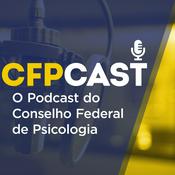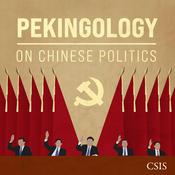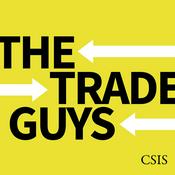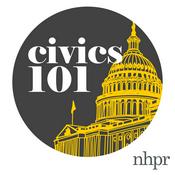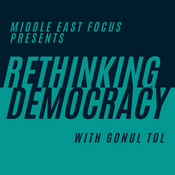Episódios Disponíveis
5 de 118
- Farewell Episode: The Good, the Bad, and Looking AheadWhat policy successes and failures have shaped outcomes for kids in the past five years, and what is necessary to create solutions in the next five? Join Naomi and Ian for the final episode of the Are You Kidding Me? podcast. From breakthroughs in school choice, to failures in child safety, to the growing ideological capture in child welfare and education, our hosts discuss “the good, the bad, and the ugly” of recent years–while looking ahead to what’s needed to create a better future for America’s children.Resources• Subscribe to the Are You Kidding Me? Monthly Newsletter • Stay Up to Date with The Free InitiativeShow Notes• 1:10 | “The Good”: Victories for School Choice • 5:04 | “The Good”: The Importance of Family Structure• 9:42 | “The Good”: Pushback against Extreme Ideas in Child Welfare • 13:10 | “The Bad”: Poor Policies around Reporting Child Safety Risks• 17:27 | “The Bad”: Misconceptions around Racial Disparities in Child Data • 18:40 | “The Bad”: The Family First Prevention Services Act’s Impact on Residential Care • 25:13 | “Looking Ahead”: Report Data by Family Structure• 29:35 | “Looking Ahead”: Better Policies around Child Maltreatment Fatalities • 32:31 | How to Stay Connected with Naomi and Ian’s Work--------38:16
- Lynn Johnson on Child Welfare Priorities for the New AdministrationWhat will a new administration in Washington mean for American children, particularly the most vulnerable? This week, Naomi and Ian are joined by Lynn Johnson, founder of All In Fostering Futures and former Assistant Secretary of the Administration for Children and Families (ACF) during the first Trump administration. Lynn explores the federal government's role in influencing child welfare at the state level and highlights how reducing regulations and compliance burdens can enable child welfare workers to focus more on serving children and families directly.She reflects on ACF’s focus during the first Trump administration, particularly its efforts to prioritize permanency in order to improve long-term outcomes for children in foster care. Lynn also discusses the need to revisit certain policies around kinship care introduced during the Biden administration. She also argues that some of the Biden administration’s rules limited state governments’ ability to collaborate with faith-based organizations to support foster children. Finally, she underscores the importance of interagency efforts to promote stable families and prevent children from entering the foster system altogether.Resources • How Churches Can Make a Difference in the Lives of Children Who Need Foster Care | Naomi Schaefer Riley• New White House Proposal to Further Alienate Religious Foster Parents | Naomi Schaefer Riley• The Privilege Hiding in Plain Sight | Ian RoweShow Notes• 00:47 | What were the child welfare priorities of the first Trump administration, and how much influence does the federal government have over policies regarding children and families? • 02:20 | Is there a parallel between the Administration for Children and Families and the Department of Education, in terms of their ability to influence state and local policy?• 04:40 | What steps did you take in your role during the first Trump administration, and what steps should be taken now that will get us closer to positive impact? • 10:00 | What can the federal government do that states cannot do to support a child who has experienced extreme instability and a high number of placements in the foster system?• 11:59 | What have the last four years looked like for child welfare under the Biden administration?• 19:31 | The Biden administration worked to implement certain requirements for foster care organizations regarding LGBTQ+ children, which could have negative impact on faith-based agencies. How should the next administration approach this issue?• 24:47 | How much should the federal government focus on prevention when it comes to child welfare issues?--------29:24
- George Borjas on Mortality Rates Among Black InfantsJustice Ketanji Brown Jackson, in her dissent on the Supreme Court’s ruling on affirmative action in 2023, cited a study published in Proceedings of the National Academy of Sciences (PNAS) concluding that black infants are more likely to survive if they are cared for by black doctors than white doctors. But a recent study using the same data suggests that race was not the real factor. This week, Naomi and Ian are joined by George J. Borjas, senior fellow at the Manhattan Institute and Professor of Economics and Social Policy at the Harvard Kennedy School, to discuss his recent paper co-authored with Robert VerBruggen, “Do Black Newborns Fare Better with Black Doctors? The Limits of Measuring Racial Concordance.” Originally part of a project analyzing the fragility of empirical findings in social science, George’s study reanalyzes the same data used in the PNAS study to see whether the same result emerged. He and VerBruggen found that if the data is adjusted for low birthweight, the correlation between race of the doctor and infant survival disappeared. Their research has now been published by the National Academy of Sciences. George discusses how the narrative about the original study persists even when new data has called it into question. Resources● Do Black Newborns Fare Better with Black Doctors? The Limits of Measuring Racial Concordance | George J. Borjas and Robert VerBruggen ● Are Black Newborns More Likely to Survive with Black Doctors? | George J. Borjas and Robert VerBruggenShow Notes● 00:47 | How did you become interested in the topic of mortality rates among black newborns? What did you find in your study?● 05:50 | Why did your study find different results using the same data as the earlier one?● 07:57 | Why did the original authors not include low birthweight as a factor in their study?● 08:48 | What did you find about the distribution of doctors to women whose infants had low birthweight?● 11:01 | Have you shared this new finding with the original authors of the study?● 13:35 | Given that low birthweight is a universally accepted factor in infant mortality, are you surprised that the original result that black infants do better when they are matched with black doctors was so widely accepted?● 17:17 | Has your study received the same kind of attention as the original study?● 18:40 | Can we empirically answer the question of whether the specialties of doctors and their respective races is the driver of better results for black infants, rather than just the race itself?--------21:43
- Catherine Pakaluk on Population Decline and the Women Choosing Large FamiliesHow do we combat historically low fertility rates? While having fewer children has been correlated with higher rates of education among women, a significant group of highly educated women are still choosing to have big families. What is different about these women, and what can they teach us about the nature of parenthood and the importance of children?This week, Naomi and Ian are joined by Catherine Pakaluk, economist and associate professor at The Catholic University of America, to discuss her recent book, Hannah’s Children: The Women Quietly Defying the Birth Dearth. In researching her book, Dr. Pakaluk interviewed women with a college education who also have five or more children with their current spouse. The vast majority of mothers she spoke with viewed raising children as their first priority. This was true of their husbands as well. Work and career were the secondary goals that supported their ability to be parents. These mothers also viewed motherhood through the lens of their faith, whether Catholic, Protestant, Mormon, or Jewish. They shared the belief that children are blessings from God. Dr. Pakaluk discusses the number of unintended, “spillover” benefits she observed among these families, such as increased independence in their children and a less materialistic approach to life, as well as what the implications of her research could be for public policy. Resources -Hannah’s Children: The Women Quietly Defying the Birth Dearth | Catherine Pakaluk-What Happens When Every Aspect of Parenting Is a Choice? | Naomi Schaefer RileyTime Stamps-00:37 | Why did you decide to begin this research?-02:30 | What were the criteria for the women included in your study?-04:44 | What were these women like, and what was the motive behind their choices to have large families?-09:20 | How do we shift the conversation around the declining birth rate from technical interventions to the deeper themes you are talking about?-13:13 | How do these women think about their choices with regard to their career? Did they make the choice from a very early age, and how did their decisions fit in with their husbands’ decisions?-17:57 | How do you reconcile the strong role religion plays in the lives of these women with the rising secularism of young people we are seeing today?-20:50 | How does the religious atmosphere in these families affect their view on material things? What are the other unintended benefits of having large families?--------29:02
- Sixto Cancel on Upgrading Technology in Child WelfareMuch like other governmental agencies, child welfare systems are long overdue for a digital upgrade. But how can we ensure the technological tools implemented truly equip caseworkers and supervisors to meet the needs of children and families?This week, Naomi and Ian are joined by Sixto Cancel, the founder and CEO of Think of Us, a tech nonprofit working to reform the child welfare system in the US. Inspired by his own story in foster care, where one, outdated sentence in his case file determined the trajectory of his time in the system, Sixto founded Think of Us to improve the tech landscape of the foster care system. From the need to incorporate assistive AI into case management to improving federal incentives to encourage innovation, Sixto discusses the key areas in need of reform. Resources• Taking Child Welfare into the 21st Century | Naomi Schaefer Riley, Ian Rowe, and Greg McKay• Big Data Can Save Kids | Naomi Schaefer Riley• Think of Us | Sixto CancelShow Notes• 00:52 | What is the technology landscape of child welfare, and are the systems being used up to date?• 03:07 | What is the origin of your name, Sixto Cancel? • 04:06 | What about your story led you down this path to work toward better experiences for youth in foster care?• 06:38 | What could systems be doing differently to take into account all of the options for foster youth?• 09:28 | How are you now using virtual support services for youth getting ready to age out of the system?• 12:15 | Many child welfare agencies contract with different providers to meet their needs. How is this currently working, and could it be more efficient?• 15:32 | Why was the federal funding you secured ineffective to upgrade the technology systems within child welfare agencies?• 17:08 | What would be the better approach? Should the federal government still be involved, or would that run the same risk of having just one large entity dominating the space and discouraging innovation?• 20:05 | Are you planning to expand the direct service component of your organization?• 21:22 | Thinking about the data you’ve collected so far, what would say is the biggest mismatch between what people need and what is being offered to them?--------23:13
Mais podcasts de Ciência política
Podcasts em tendência em Ciência política
Sobre Are You Kidding Me?
Sometimes the very strategies meant to help children have the opposite effect. Join AEI’s Naomi Schaefer Riley and Ian Rowe as they look behind the headlines at the public policies and cultural agendas driving child welfare and education. Rowe and Riley bring to light practices that will make you ask, “Are you kidding me?”
Site de podcastOuça Are You Kidding Me?, Conexão Brasília-Ceará e muitos outros podcasts de todo o mundo com o aplicativo o radio.net

Obtenha o aplicativo gratuito radio.net
- Guardar rádios e podcasts favoritos
- Transmissão via Wi-Fi ou Bluetooth
- Carplay & Android Audo compatìvel
- E ainda mais funções
Obtenha o aplicativo gratuito radio.net
- Guardar rádios e podcasts favoritos
- Transmissão via Wi-Fi ou Bluetooth
- Carplay & Android Audo compatìvel
- E ainda mais funções


Are You Kidding Me?
Leia o código,
baixe o aplicativo,
ouça.
baixe o aplicativo,
ouça.




